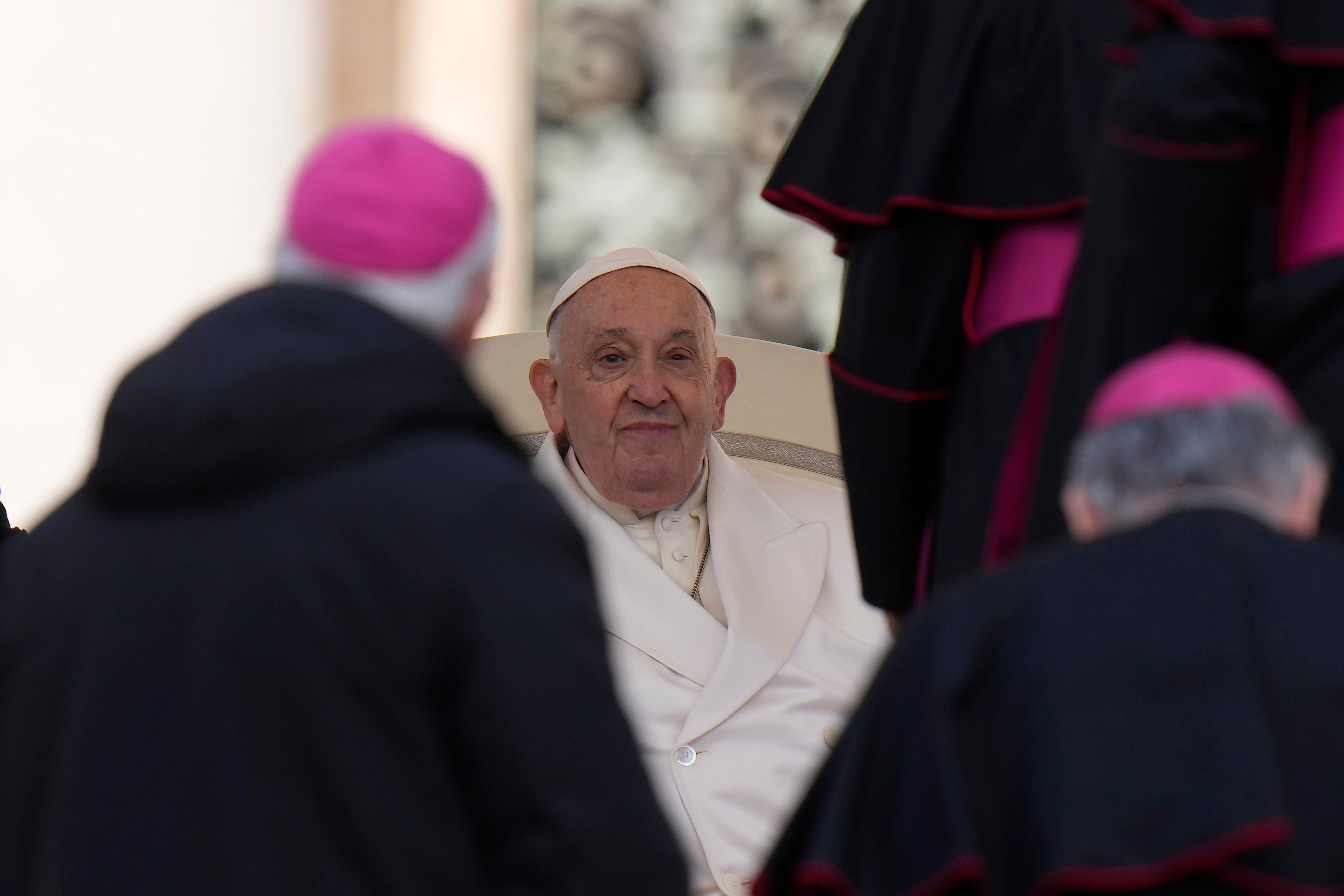The Independent's journalism is supported by our readers. When you purchase through links on our site, we may earn commission.
With one slur, the Pope has shown his true colours on homosexuality
Following a leaked report suggesting Pope Francis used a deeply offensive word to describe the gay men working in the Vatican, Peter Stanford says it is time church-goers rejected a fundamental hypocrisy that runs through the core of Catholicism


In the Christian gospels, Jesus talks a great deal about the good society, and how individuals should treat each other. One-sentence summaries are necessarily crude but, in essence, he preaches to never treat others in a way that you wouldn’t want to be treated yourself.
Pope Francis might do well to reflect on that core teaching in the light of reports that, in a recent meeting of Italian bishops, he referred to gay men in the Vatican as frociaggine, an offensive Italian collective noun that roughly translates as “f*****ry”.
It is enough to make all Catholics – many, like me, just about clinging to mass-going after the paedophile priests’ scandal and cover-up – hang their heads in despair.
Apparently, he also said that he didn’t want gay men to go to seminaries to train as Catholic priests. You might wonder why any would bother if this is the type of language that will greet them.
In 2019, In The Closet of the Vatican, a book by French journalist Frederic Martel – serious in intention, unashamedly popular in tone – alleged that as many as four out of five clerics working at Catholicism’s HQ were gay, though not all were sexually active.
Whatever the true figure, there is a fundamental hypocrisy that runs through the core of Catholicism, a church that continues openly to teach that homosexuality is an “intrinsic disorder” but, at the same time, condemns homophobia.
The Jesus of the gospels says not a single word to justify such condemnation, though same-sex orientation and relationships were facts of life in first-century Jerusalem as much as in the 21st-century Vatican.
What he does teach is that God made us all in his own image, and loves us whoever we are. That should, at a stroke, silence the debate in churches on gay priests and same-sex relationships, and leave time for these institutions to get on with tackling the real problems facing the world: poverty, injustice, climate change.
In fairness to Pope Francis, he has been doing a really good job on all these fronts, one of the few leaders with global influence (there are 1.4 billion Catholics in the world) demanding radical action to limit the warming of the planet. And he has lived out his instinctive commitment to those on the margins of society, urging his priests to get out of their pristine churches and live alongside the poor as he did in Buenos Aires.
There was hope at the start of his “outsider” papacy – he had never held any post in the Vatican before his surprise election in March 2013 – that he might finally stop the navel-gazing on same-sex relationships. On an early trip that July to Brazil, he famously said in response to a question about gay priests: “Who am I to judge?”
Well, he seems to have made up his own mind now, even if, as recently as last December, he handed priests the power to bless same-sex couples. At 87, liberal Catholics have long hoped that Francis will make significant reforms to the church’s laws to bind his successors more than words and gestures towards tolerance ever will. Instead, his choice of language suggests he is heading in the opposite direction.
It leaves the church he otherwise leads so well in the fight against poverty and climate disaster looking hopelessly out of step with the modern world. Catholics of my generation have often stayed in the belief reform has to come. If Francis’s words leave us despondent, our children – despite their Catholic education – are writing the church off as a lost cause.
Peter Stanford is a former editor of the Catholic Herald. His book, ‘What We Talk About When We Talk About Faith’, is published by Hodder (£10.99)






Join our commenting forum
Join thought-provoking conversations, follow other Independent readers and see their replies
Comments